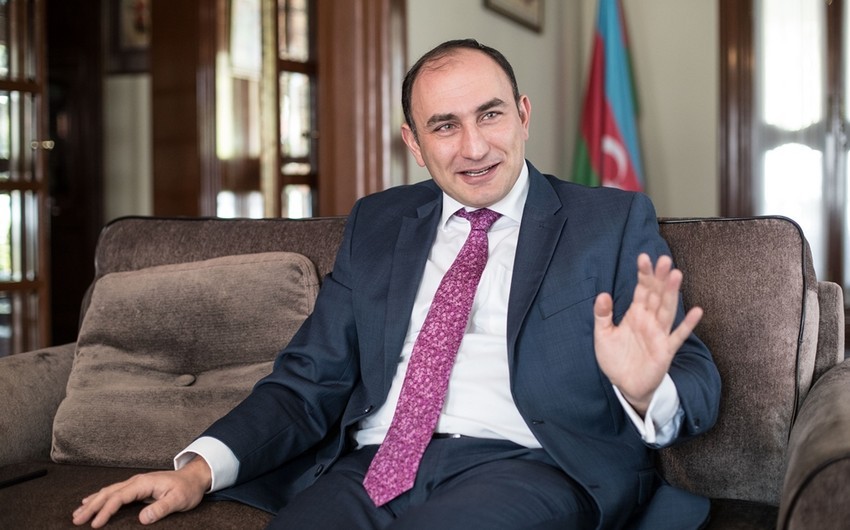Colombian news portals Valaguela.com (Azerbaijan, a model nation of tolerance in the world) and Planesymas.com (Get to know Azerbaijan better) posted a video interview of Ambassador Mammad Talibov on the history of the Armenian-Azerbaijani Nagorno-Karabakh conflict and Armenia's recent military aggression.
Noting that the conflict erupted with Armenia's territorial claims against Azerbaijan, the ambassador said that 20 percent of Azerbaijan's internationally recognized territories, including Nagorno-Karabakh and seven surrounding regions, had been occupied by Armenia for about 30 years and expelled nearly 1 million Azerbaijanis.
Armenia has taken provocative steps at various times, ignoring the UN Security Council resolutions that demand the immediate and unconditional withdrawal of Armenian troops from the occupied Azerbaijani territories and completely disrupted the negotiation process mediated by the OSCE Minsk Group. On September 27, Armenia launched another attempt at aggression and bombed civilian areas in violation of the norms and principles of international humanitarian law.
Stressing that the Azerbaijani side launched a counteroffensive to restore territorial integrity as part of its right to self-defense, Talibov added that our lands were liberated from Armenian occupiers as a result of the 44-day war.
He also emphasized that the hostilities ended with signing a trilateral statement by the Presidents of Azerbaijan and Russia and the Prime Minister of Armenia. Under the deal, Russia deployed its peacekeepers to the region. Moreover, a joint monitoring center was established to observe the implementation of the ceasefire.
According to Talibov, Azerbaijan is a place where people of different religions and races always live together in peace. That is why Pope Francis called the country a model of tolerance for the entire world. In this regard, Armenians living in the Karabakh region of Azerbaijan will live peacefully with Azerbaijanis like other nations. Thus conditions will be created for the restoration of stability and security in the South Caucasus.


 https://static.report.az/photo/789fa127-a4dc-322e-8df7-9cd9dcc22fed.jpg
https://static.report.az/photo/789fa127-a4dc-322e-8df7-9cd9dcc22fed.jpg

